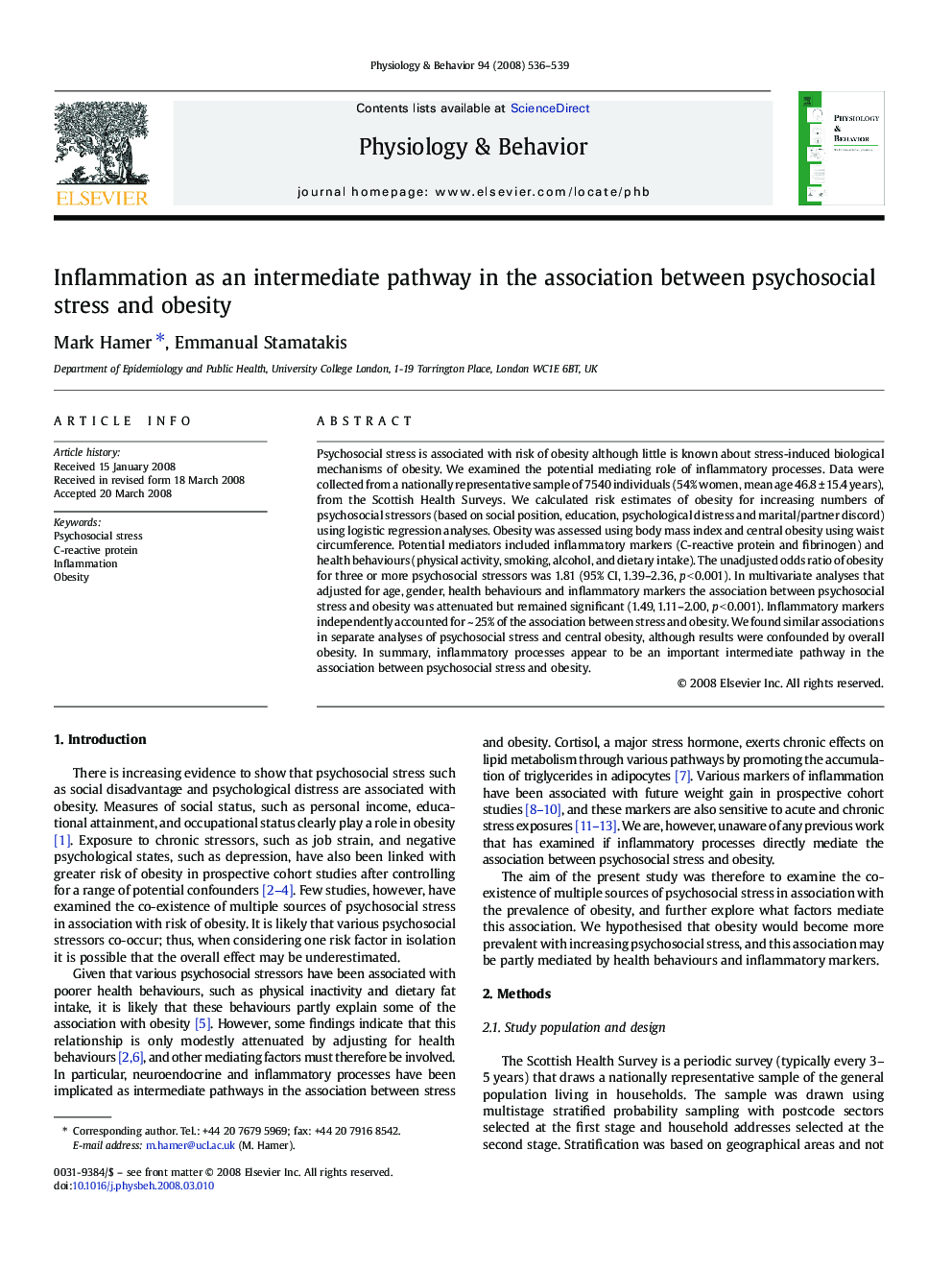| Article ID | Journal | Published Year | Pages | File Type |
|---|---|---|---|---|
| 2845276 | Physiology & Behavior | 2008 | 4 Pages |
Psychosocial stress is associated with risk of obesity although little is known about stress-induced biological mechanisms of obesity. We examined the potential mediating role of inflammatory processes. Data were collected from a nationally representative sample of 7540 individuals (54% women, mean age 46.8 ± 15.4 years), from the Scottish Health Surveys. We calculated risk estimates of obesity for increasing numbers of psychosocial stressors (based on social position, education, psychological distress and marital/partner discord) using logistic regression analyses. Obesity was assessed using body mass index and central obesity using waist circumference. Potential mediators included inflammatory markers (C-reactive protein and fibrinogen) and health behaviours (physical activity, smoking, alcohol, and dietary intake). The unadjusted odds ratio of obesity for three or more psychosocial stressors was 1.81 (95% CI, 1.39–2.36, p < 0.001). In multivariate analyses that adjusted for age, gender, health behaviours and inflammatory markers the association between psychosocial stress and obesity was attenuated but remained significant (1.49, 1.11–2.00, p < 0.001). Inflammatory markers independently accounted for ~ 25% of the association between stress and obesity. We found similar associations in separate analyses of psychosocial stress and central obesity, although results were confounded by overall obesity. In summary, inflammatory processes appear to be an important intermediate pathway in the association between psychosocial stress and obesity.
